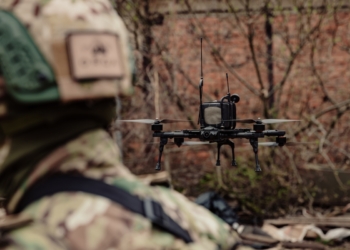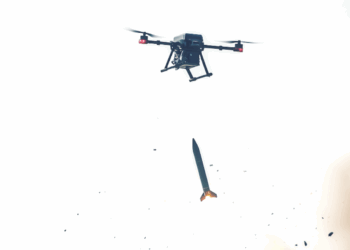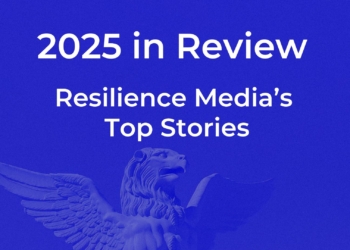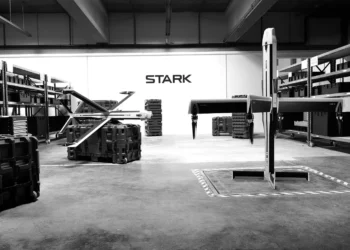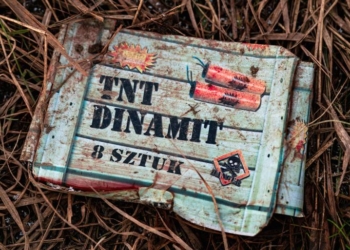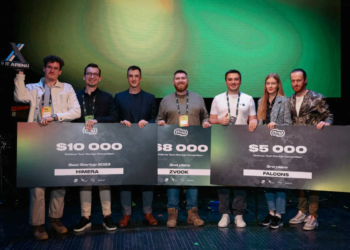Rheinmetall and Auterion announced on stage at The Future of Defence Tech Manufacturing & Innovation event a hardware-software partnership that will build a common operational platform, standardising military software across NATO.
“[W]hat we will see in the future are…hundreds of drones in coordinated strikes. And the best way to look at this problem is [to] imagine NATO having to fight together without English, without a common language,” said Auterion CEO Lorenz Meier. “That’s impossible. There’s a NATO language school. We need the same thing for autonomous systems.”
European manufacturing powerhouse, 136 year old Rheinmetall, and new player Auterion, founded in 2017, seem to have little in common, but looks can be deceiving. Having gone on a recent acquisition spree, Rheinmetall gave autonomy to the CEOs of the companies they purchased, allowing them to continue growing their businesses in ways that kept their unique company culture. This made those business units even more profitable for Rheinmetall and made Rheinmetall a more attractive partner for a startup like Auterion. Why? Rheinmetall’s leadership is comfortable with risk – courageous, even – allowing their partnerships to function with the agility that is in a startup’s DNA.
“…[Rheinmetall] have to [have courage]. We have to enforce our manufacturing base. We have to take risk, otherwise we are too slow,” said Kappen.
“Rheinmetall really impressed us by bringing in a lot of fresh blood. For example, the Chief Digital Officer of Rheinmetall is actually the former CEO of an acquisition,” Meier echoed. “And that changes completely how our experience is working with the company; really risk taking, forward leaning, willing to question itself, willing to question the old ways of doing things.”
With both companies being battle-tested in Ukraine, Meier’s drone operating system is a proven commodity. Linking up with the largest German arms manufacturer made sense, as Europe will need to scale dramatically its military and manufacturing capabilities. Manned and unmanned teaming will be a critical component of that success. Meier told the audience, “What we’re talking about is installing software on drones, treating them as autonomous computers, and getting joint behaviour like an enemy air suppression mission where you fly with drones that jam drones with warheads, and really a coordinated strike in the hundreds. That is where we’re going. And for that to happen, you have to have the ability to have a common software infrastructure.”
Those drones will be manufactured by Rheinmetall, in one of its factories in Italy, Ukraine, Hungary, or Germany.
When asked about the partnership, Meier took the opportunity to make an observation about the state of defence tech investing, suggesting that partnerships with companies like Rheinmetall are a better bet than venture capital funding.
“[W]hat I actually want to highlight about the manufacturing base is – and this is also going to be a little bit of a pointed comment towards the financial and venture industry – everybody talks about defence. Everybody talks about [its] importance, but then when it comes to the Dollars or Euros, they’re not moving. And it’s really hard as a business to do that. And where I have to commend Rheinmetall and their CEO is Rheinmetall took a risk and did lean forward without contracts, without anything.”
Both Meier and Kappen have hope for the future. When asked where the partnership will look like in five years, Kappen expressed hope that the war in Ukraine would be over for five years. Meier, was more sanguine: “A million drones that are ready to go at [a] moment’s notice and provide credible deterrence in Europe’s east.”
Watch their interview and the rest of The Future of Defence Tech Manufacturing & Innovation panels here.
The Future of Defence Tech Manufacturing & Innovation, was presented by the US Defense Innovation Unit and Munich Security Conference Tech & Innovation Thursday, sponsored by Boston Consulting Group, and powered by Resilience Media.



